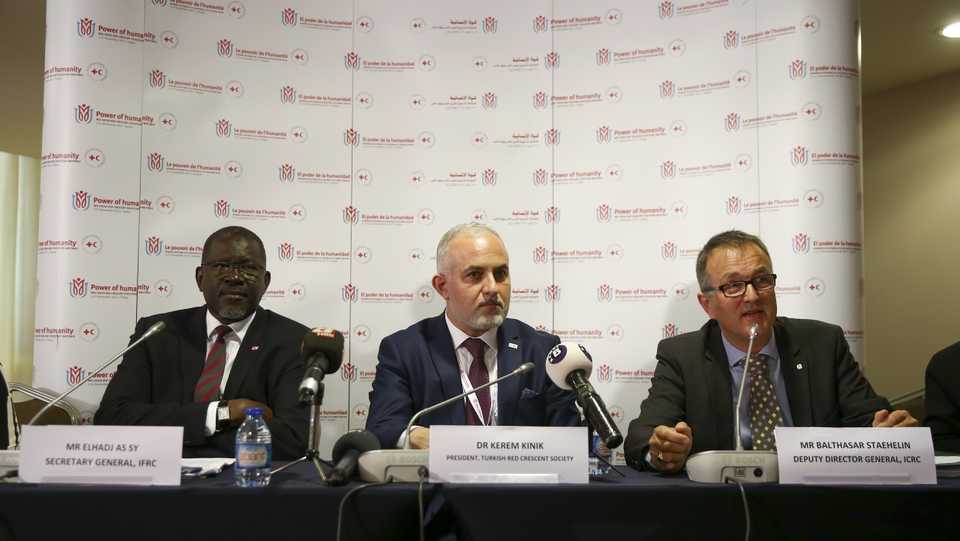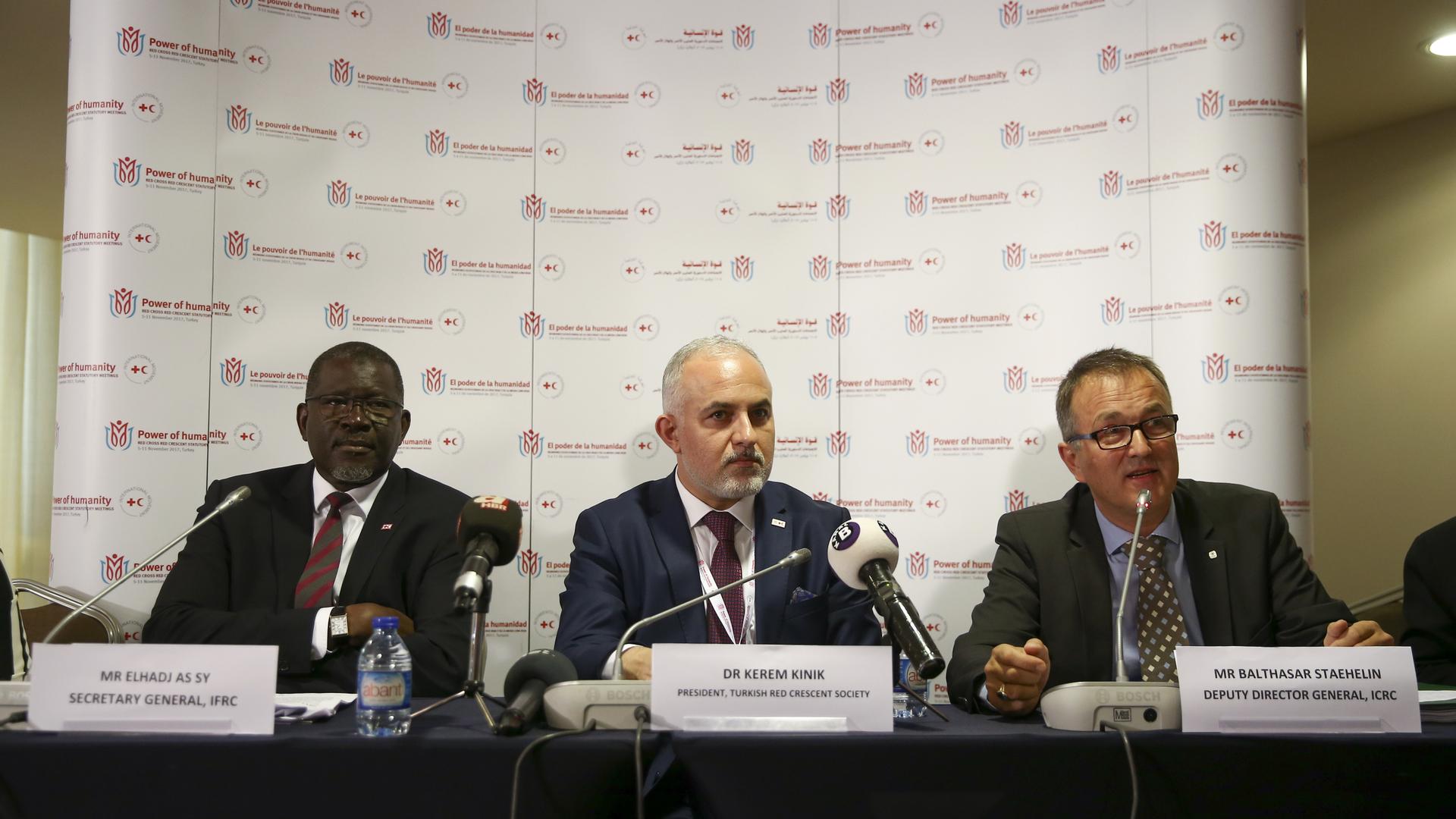
The Turkish Red Crescent Society head on Sunday criticised the hierarchy of the UN Security Council where only five countries have veto powers.
“Today the world system and security policies are determined by – a minority – the Security Council,” Kerem Kinik told a joint press briefing of the Red Cross and Red Crescent statutory meetings held from November 5-11 in Antalya.
“This system has to change. It needs to be reconsidered with a humanistic approach,” he said.
He lamented the growing attacks on aid workers.
“Aid workers who are part of peacekeeping projects need to be protected,” he said.
“Therefore the voice our movement raises today is the voice of humanity. It is a voice to increase the security of people affected by conflicts,” he added.
Elhadj As Sy, secretary-general of the International Federation of Red Cross and Red Crescent Societies (IFRC), said his organisation provides health facilities in 190 countries, without any discrimination based on nationality, race, class or religion.
Responding to a question about an alleged $6 million corruption charge in the fight against the Ebola virus in Sierra Leone and Liberia, he said the organisation is investigating the issue.
“Everybody who has done wrong will be held accountable, even if they are staff members of the IFRC,” he said.
Balthasar Staehelin, deputy director-general of the International Committee of Red Cross, said it has problems in accessing conflict areas in Syria and Myanmar.
“When we do aid work, our main goal is to solve those problems with principles,” Staehelin said, adding that his organisation does not support the powerful but the oppressed.
The IFRC was founded in 1919 to alleviate human suffering in the world.
The statutory meetings of the International Red Cross and Red Crescent movement will bring together all 190 National Red Cross and Red Crescent Societies, along with the International Federation of Red Cross and Red Crescent Societies (IFRC) and the International Committee of the Red Cross (ICRC).










Discussion about this post